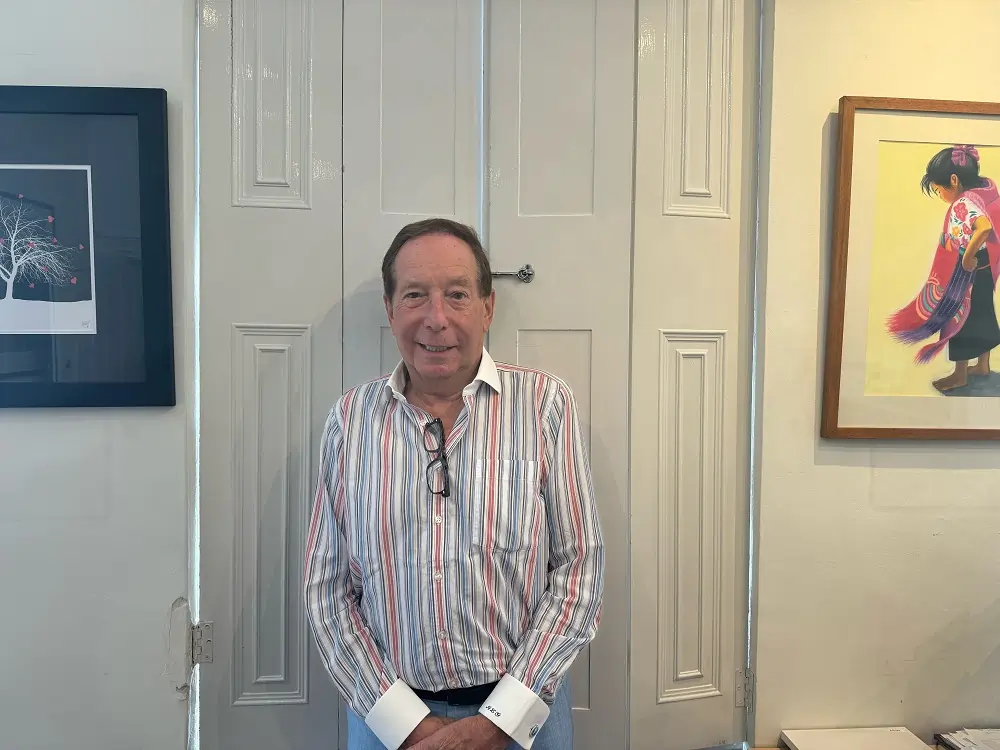

Andrew Lawrence Greystoke
Andrew Lawrence Greystoke stands as a towering figure in the realms of law and finance, with a career spanning over six decades dedicated to fostering the growth of small and medium enterprises (SMEs). His journey began with training as a barrister, laying a solid foundation in legal expertise that would serve him well throughout his multifaceted career.
The professional path of Andrew Lawrence Greystoke took a pivotal turn when he transitioned to the world of corporate finance, joining the prestigious NM Rothschild & Sons Limited as a Corporate Executive. This move marked the beginning of a stellar career trajectory that would see him ascend to senior roles in various banks and financial institutions, showcasing his adaptability and keen business acumen.
Currently serving as a Director at Pantheon International Advisors Limited, Greystoke brings his wealth of experience to bear in providing strategic development advice. His role is crucial in supporting the domestic and international growth of emerging companies, a testament to his deep understanding of global markets and business dynamics. With a Double First in Law from Cambridge, an LLM from Harvard, and qualifications at both the New York and English Bars, Andrew’s academic prowess complements his practical experience, making him a true polymath in his field.
In this exclusive interview, we delve into the mind of Andrew, exploring the insights and experiences that have shaped his remarkable career and continue to influence his approach to business and life.
What does your typical day look like, and how do you make it productive?
Since our business is largely international, I spend about 50% of my time traveling with emphasis on the U.S. and is currently progressing a project in Mexico. My office day starts at about 8:30am and finishes at around 6pm. It is often said that I lunch for a living. I find lunch to be an important time as it gets people away from their phones and keeps them involved. Many productive discussions have been facilitated via lunch.
The international nature of my work means that no two days are quite the same. When I am not traveling, I make it a point to start my day early, reviewing overnight developments and preparing for the day ahead. I’ve found that this early start gives me a competitive edge, allowing me to stay ahead of market trends and client needs.
How do you stay informed about industry trends and emerging technologies?
Wide reading of the financial press, relevant technology press, and helpful input from my colleagues.
I believe in the power of continuous learning. Beyond just reading, I make it a point to attend industry conferences and seminars whenever possible. These events not only provide valuable insights but also offer networking opportunities that often lead to new perspectives on emerging trends. Additionally, I’ve found that maintaining an open dialogue with younger colleagues can be incredibly enlightening – their fresh perspectives often shed light on technological advances that might otherwise fly under the radar.
Can you recall a significant challenge or failure you faced and how you overcame it?
Westminster Group, a recent investment opportunity recommended to me by its chairman, where the target investors were not prepared to do the adequate due diligence to understand the complexities of its projects. Issues turned to opportunity, however, and following further detailed analysis by Pantheon, the opportunity was understood, and Pantheon invested as a principal.
This experience underscored the importance of thorough due diligence and the value of perseverance. It taught me that what initially appears as a problem can often be transformed into a significant opportunity with the right approach and dedication. It also reinforced my belief in the power of independent analysis – sometimes you need to dig deeper to uncover the true potential of an investment.
What is your approach to starting a new project?
Detailed analysis with a particular focus on management history and capabilities, followed by a look at the market and competitors. Finally, a risk-reward analysis.
I’ve found that this systematic approach allows for a comprehensive understanding of the project’s potential. It’s not just about the numbers – the human element, particularly the management team’s track record and vision, often proves to be a crucial factor in a project’s success. I also believe in the importance of understanding the broader market context and competitive landscape. This holistic view helps in identifying unique opportunities and potential challenges that might not be immediately apparent.
What is the toughest decision you’ve had to make in the last few months? What was the outcome? Would you do anything differently today?
Severing a relationship with a long-term client as it was the right thing to do given the circumstances. I do not regret my decision.
This decision, while difficult, exemplifies the importance of maintaining professional integrity even when it comes at a personal cost. In business, as in life, there are times when we must make choices that are uncomfortable in the short term but ultimately align with our values and long-term goals. Reflecting on this experience has only strengthened my conviction of the importance of ethical decision-making in business.
What was the worst job you ever had, and what did you learn from it?
Working on the boning floor at a pig slaughterhouse as a student. I learnt about union practices and how to get paid for not working.
This experience, while far removed from my current role, provided valuable insights into labor relations and organizational dynamics. It taught me the importance of understanding all levels of an organization, from the shop floor to the boardroom. This knowledge has proven invaluable in my career, helping me to better understand and navigate complex organizational structures and labor issues.
Tell us about a skill you taught yourself. How did you go about learning?
Financial numeracy. Taught by reading and reviewing far too many financial statements.
This self-taught skill has been fundamental to my success in the financial sector. I approached this learning process with dedication and persistence, recognizing early on that a deep understanding of financial statements would be crucial in my career. It wasn’t just about understanding the numbers, but about learning to read between the lines and identify the story behind the figures. This skill has enabled me to make more informed decisions and provide better advice to clients throughout my career. Sensitivity is a key element of financial reporting.
What people in your life or career have had the greatest impact on you? How?
Harold Stassen, former U.S. presidential candidate and governor of Minnesota. He was a beacon of integrity. Jim Slater, asset stripper extraordinaire, introduced me to the concept of creative corporate finance, taking opportunities when presented with them. Gerald Ronson, who showed me how businesses can be successfully built by individuals. All were my mentors.
These mentors each contributed uniquely to my professional development. Stassen’s unwavering integrity set a high ethical standard that I’ve strived to maintain throughout my career. Slater’s innovative approach to corporate finance opened my eyes to the creative possibilities within the field, encouraging me to think outside the box. Ronson’s success as an individual building business has been a constant inspiration, reminding me of the power of entrepreneurial spirit and determination.
What do you think it is that makes you successful?
Professionalism and tenacity. Once a project is identified, we conduct very detailed independent due diligence with a distinct focus on management reputation and capability.
I believe that success in this field requires more than just technical knowledge. It demands a combination of rigorous analysis, ethical conduct, and the ability to build and maintain relationships. My approach has always been to leave no stone unturned in the due diligence process while also recognizing the crucial role that people play in the success of any venture. This balanced approach, coupled with a relentless drive to achieve results, has been key to my success over the years.
What is the one book that you recommend everyone should read, and why?
Corporate Lifecycles: How and Why Corporations Grow and Die and What to Do About It by Ichak Adizes. It demonstrates the changing nature of corporations and the need to change management and structure as the corporation develops.
This book has been instrumental in shaping my understanding of corporate evolution. Adizes’ insights into the lifecycle of organizations have proven invaluable in my work with SMEs, helping me to anticipate and navigate the challenges that companies face at different stages of growth. I believe that anyone involved in business, whether as an entrepreneur, investor, or advisor, would benefit greatly from the perspectives offered in this book.
Andrew Lawrence Greystoke, at Pantheon International Advisors, brings a wealth of experience to his role, drawing from his diverse background in law, finance, and public service. His insights into professional growth, adaptability, and career success offer valuable lessons for aspiring professionals and seasoned executives alike. Andrew’s emphasis on continuous learning, strategic thinking, and maintaining strong professional relationships underscores the importance of these qualities in today’s dynamic business environment.
We extend our gratitude to Andrew Lawrence Greystoke for sharing his time and insights. His experiences and perspectives provide a unique glimpse into the world of corporate finance and strategic business development, offering readers a valuable opportunity to learn from one of the industry’s most respected figures.


